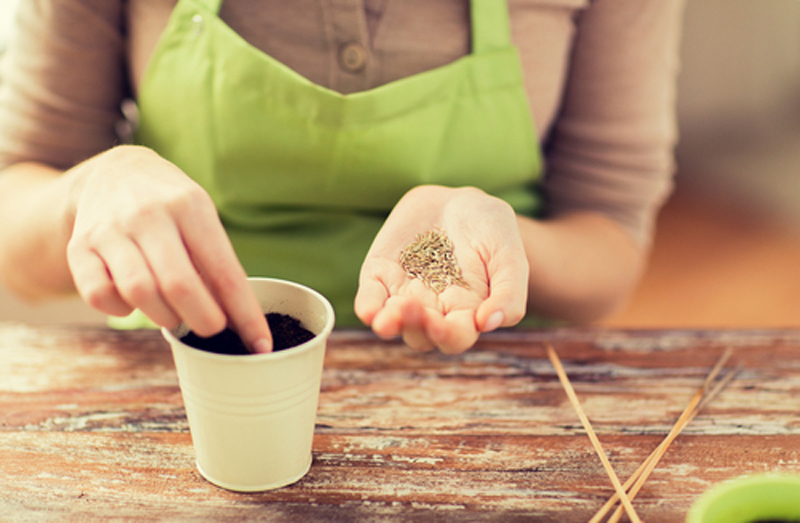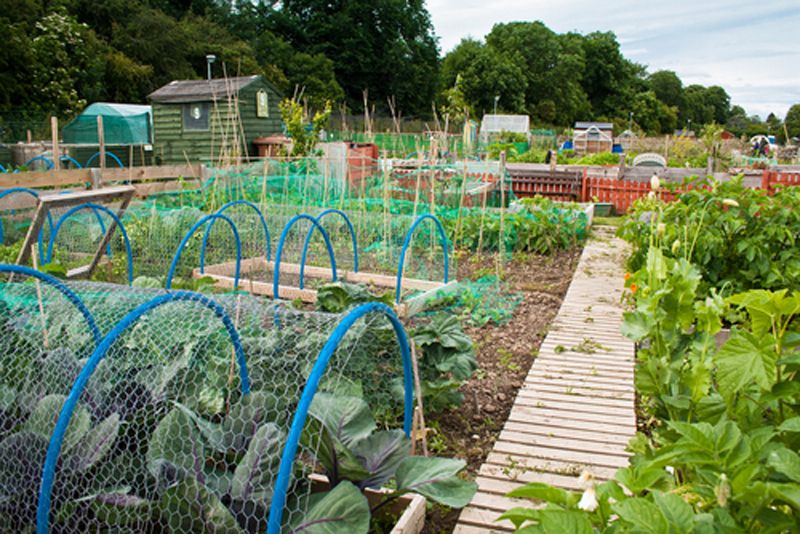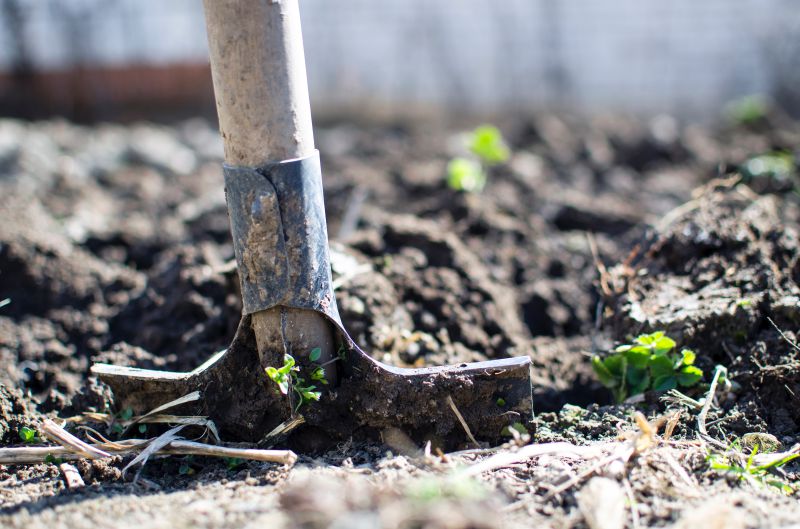Summer’s officially here at last with longer days, some welcome sunshine and a few much-needed showers to keep our countryside, farms and gardens green, fresh and productive. Getting outside and getting stuck into some gardening can be very rewarding, and many studies have shown how it can benefit both your physical health and your mental wellbeing.
Firstly, the physical exertion involved in gardening can equate to a good workout in the gym and provide the same positive health benefits. Gardening compares favourably with other moderate to strenuous exercise, such as cycling or walking, and works all the major muscle groups – legs, buttocks, arms, shoulders, neck, back and abdomen, toning, building strength and burning calories. It involves stretching when reaching for tall branches or tying up climbers, bending when planting or weeding, lifting weights, such as heavy pots and bags of compost, and pushing and pulling wheelbarrows, mowers, rakes, hoes and brooms. In other words, it involves activities very similar to resistance training or weightlifting, leading to more flexibility, and stronger, healthier bones and joints with minimal jarring or stress to the body.

If you are trying to lose weight, some of the more strenuous tasks involved in gardening can burn some serious calories too. Three hours of gardening can burn as many calories as an hour at the gym; although the exercise may be less intense, it is nevertheless, equally beneficial and you may not even be aware you are working out. This is a rough guide to the average number of calories burned per hour when performing some of the more common gardening tasks: -
- Digging and shovelling – 500 calories
- Mowing the lawn with a manual lawnmower – 300 calories
- Weeding and planting – 300 calories
- Raking and sweeping – 400 calories
Gardening also offers further benefits, including: -
- Helping protect against heart disease by raising your heartbeat, and lowering blood pressure and cholesterol levels.
- Getting you out of doors into the fresh air, where sunlight will cause your exposed skin to manufacture vitamin D, essential for healthy bones, teeth and muscles.
- Relieving loneliness, anxiety, depression and stress. Numerous studies have shown gardening to be an ideal therapy for dealing with addiction, anxiety and mental health disorders. The psychological benefits of nurturing plants and flowers and soaking up the beauty around you cannot be overestimated. It lowers your blood pressure, calms you down and helps your overall wellbeing.
- Helping you sleep. Gardeners have lower levels of the stress hormone, cortisol, leading to relaxation and better sleep patterns.
- Building confidence and self-esteem and rekindling your engagement with the world. Most children enjoy gardening (it’s a good excuse to get really dirty) and planting seeds and growing your own fruit and vegetables can re-awaken that first wonder you felt as a child in the miracles of nature that surround you. Given some water, warmth, air and light, a tiny seed carries all the genetic material needed for it to germinate and develop into a fully-grown plant or even a huge tree. We sometimes forget just how amazing this is.
- Achieving enormous satisfaction from “growing your own” fruit and vegetables, improving your diet and reconnecting you with where your food comes from.
- It is believed that exposure to soil bacteria means gardeners have a stronger immune system.

Once you get into it, gardening is a pleasure. While you’re working in the garden, watching it grow, admiring the fruits of your labour and sharing the results with friends and family, you may not even realise that you are exercising too and that gardening is a great way to top up your fitness regime. Just remember to vary your activities, so you don’t overwork specific muscles, and bend your knees when lifting, to avoid straining your back.
![]()
![]()
![]() blog
blog![]()
![]()
![]() blog
blog

